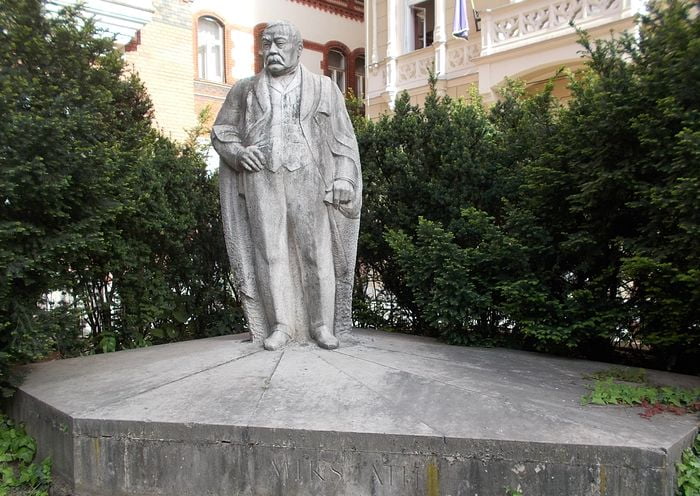No attempt was made to overwhelm the enemy in actual operations, but his transports were invariably stopped in convoys, he was cut off from free use of the roads, all merchandise being conveyed to the capital from abroad was impounded– to the great advantage of Sclerus’s own army. Moreover, by maintaining strict vigilance, orders transmitted through state couriers were intercepted and never carried out.
25. The rebellion began in the summer and dragged on into the autumn. A whole year passed by, and the intrigue was still not crushed. As a matter of fact, this evil troubled the state for many years to come. The truth was, the men who had enrolled in Sclerus’s army were no longer divided in their loyalties: every one of them was a declared rebel.
Reconciled their differences
Their leader inspired them with his own resolute determination and bound them into one coherent body. By favours he won their loyalty, by his kindliness he earned their devotion. He reconciled their differences, ate at the same table as his men, drank from the same cup, called them by name, and by his flattery bound them to his allegiance.
26. The emperor tried all his wiles and tricks to frustrate him, but Sclerus evaded all these attempts with the greatest of ease. Like a good general, he answered his opponent’s schemes and plans with stratagems of his own. So Basil, seeing that his enemy could never be caught, sent an embassy to him with the suggestion that terms should be arranged, and that Sclerus should abandon the revolt.
If he accepted the emperor’s proposals, he was to occupy rank second only to Basil himself. At first, the pretender did not respond to these overtures with any great alacrity, but later, when he had given the matter deep thought and compared his present position with the past, guessing what the future might hold for him in comparison with the present; when he considered his personal prospects thus (he was already an old man), the proffered negotiations were not unattractive.
So he assembled the whole of his army, to support him at the reception of the imperial envoys, and made peace with Basil on the following terms: he (Sclerus) was to resign his crown and give up wearing the purple, but to take precedence immediately after the emperor; the generals and other ranks who had revolted with him were to retain their present positions, and to enjoy as long as they lived whatever privileges he had conferred upon them; they would be deprived neither of property formerly in their possession, nor of any thereafter acquired through Sclerus, nor would they be stripped of any other advantages which had fallen to their lot.
Read More about Chivalry part 7








